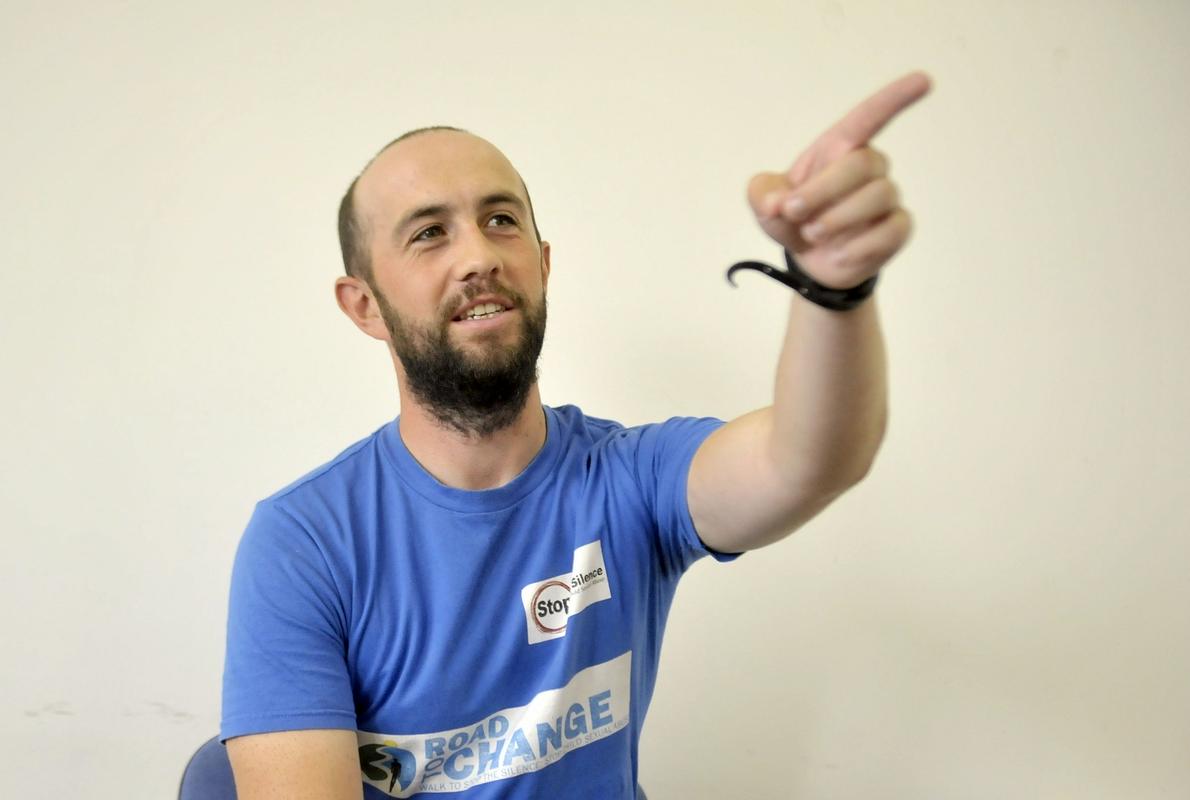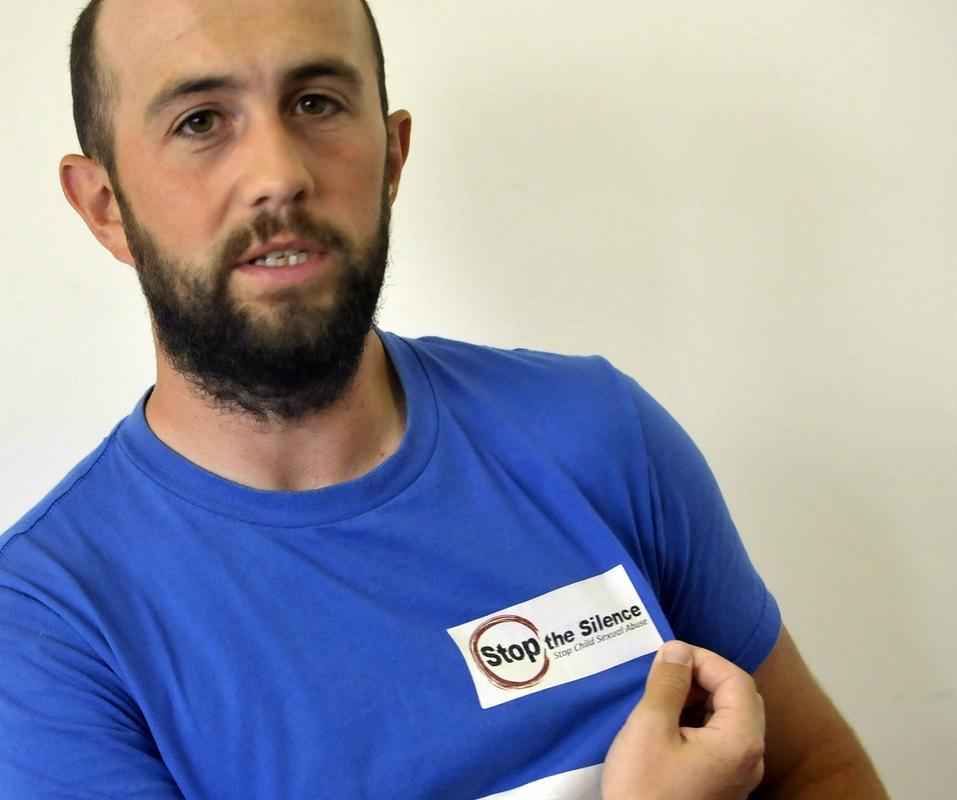

Public awareness encourages people to speak up, and in the same time prevents the offenders from repeating the deed, believes the dedicated fighter against sexual abuse, and the soul of the Road to Change project. He started walking on May 31, 2013 from London, and on his 16 thousand kilometres long travel he intends to walk through 28 countries of the EU. He expects to complete his journey in February next year in Edinburgh. It’s one of the ways McVarish is fighting against his own pain: from the age of three to thirteen he and his three brothers had been sexually abused by their uncle, a teacher.
____________________________________
We all usually prefer to turn a blind eye to sexual abuse. Why do you consider awareness of this subject so important?
Because sexual abuse is much more frequent than we realize. Every fifth person born on this planet has been sexually abused. And the damage done is much larger than the society, and the governments, realize. You will notice that the name of the organisation I represent is Stop the Silence: Stop Child Sexual Abuse, and not Stop the offenders. The fact is that sexual abuse thrives in silence. Keeping silent about it allows it to happen. As it is unpleasant to talk about it, we keep silent, and allow new abuse to happen.
And what are concrete actions the system can take to protect victims, and punish offenders?
The data that a large number of people suffering from mental illnesses and disorders had been abused in childhood is surprising. The abused also die sooner, as proved by the Adverse Childhood Experience research. Children often believe it is their fault, and that they are bad people. It is hardly possible for them to fulfil their potential with such a poor self-image. How can they strive for success in school? How can they give their best when they had been deprived of all ambitions already in their childhood? And it happens to every fifth child! Look around you. Twenty of the people you see know exactly what I am talking about.
The governments don't consider solving the problem of child sexual abuse a priority. But when we take into account how many of homeless people and drug addicts had been abused in their childhood, it is immediately clear that by solving the question of sexual abuse these problems would be solved as well. The price the society pays, and the actual price, could be lower, definitely. A correct approach to prevention of child sexual abuse would reduce social problems. Savings could be achieved in health care as well, as child sexual abuse is connected with increased illness rate of chronical, or fatal diseases.
How to encourage victims to talk?
I hope that those of you who read these words and had been abused as a child understand that what had happened to you was not your fault, in no way. You had done nothing wrong, being a child. You hadn’t deserved to be abused, and hadn’t caused it by anything you did. What had happened to you had been a criminal act. A crime!
Have you been a victim of child sexual abuse in your childhood?
Yes, I was a victim of sexual abuse myself. And my three brothers as well. My brothers suffer from depression, I don't. The difference is that I went to therapy at the age of 17. I spoke about what had happened to me. Mostly because my oldest brother, 25 at that time, was hospitalized for a mental breakdown; it was the first time he has ever spoken of the abuse. The best medicine for the sexually abused is to talk about it. Public awareness encourages people to speak up, and prevents perpetrators from repeating their act.
Hadn’t anybody suspected anything?
My uncle had abused me from the age of three to thirteen. I doubt nobody had noticed anything, or at least suspected something had been going on. But in the 80s and 90s of the previous century nobody talked about it. Today the situation is different. In Britain people start talking when they have reasons to suspect, they ask themselves: "Wait a minute. What's going on there?" I speak of child sexual abuse all over the world.
And what is the epilogue of your story? Where is your uncle now?
I was 25 when I filed a charge. My uncle was still teaching at that time. He was still free, and in contact with young children. I realized that my silence made it possible. The charge had nothing to do with revenge, it had to do with protection of children. I knew he was an extremely dangerous person, but nobody else knew it. Often the victim is the only one who knows the danger the offender presents to children. My uncle was sentenced to six years in prison, and he is still serving his sentence.

































































